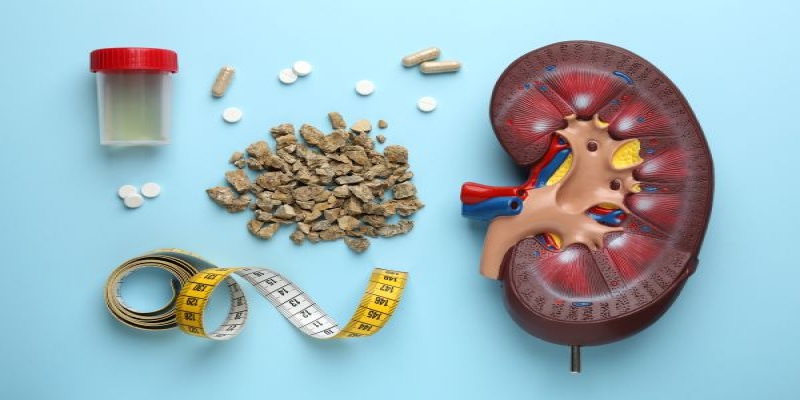A Comprehensive Guide to Passing Kidney Stones: Tips, Prevention, and Relief
2024-03-15 / RG STONE HOSPITAL / Urinary / Kidney Stone

Introduction:
Kidney stones, though small in size, can cause excruciating pain and discomfort. Understanding how to pass them quickly and prevent future occurrences is crucial for anyone who has experienced this condition. In this comprehensive guide, we will delve into effective strategies for passing kidney stones, tips for prevention, and the stages involved in the process.
Understanding Kidney Stones
-
Definition and Composition: Kidney stones are solid mineral deposits formed in the kidneys, typically composed of calcium, oxalate, or uric acid.
-
Causes: Factors such as dehydration, diet high in certain minerals, family history, and underlying medical conditions contribute to the formation of kidney stones.
-
Symptoms: Common symptoms include severe pain in the back or side, nausea, vomiting, and blood in urine.
How to Pass a Kidney Stone
-
Stay Hydrated: Drinking plenty of water helps flush out the stone-causing minerals and prevents further buildup. Aim to drink at least 8-10 glasses of water per day.
-
Pain Management: Over-the-counter pain relievers such as ibuprofen or acetaminophen can alleviate discomfort. Your doctor may prescribe stronger medication if needed.
-
Use Heat Therapy: Applying heat to the affected area can help relax the muscles and alleviate pain. Use a heating pad or take a warm bath to soothe discomfort.
-
Try Medications: Certain medications such as alpha-blockers or calcium channel blockers can relax the muscles in the ureter, making it easier for the stone to pass.
-
Physical Activity: Light physical activity, such as walking, can help stimulate blood flow and promote movement of the stone through the urinary tract.
Passing a Kidney Stone in 24 Hours
- While passing a kidney stone within 24 hours is not always possible, there are steps you can take to expedite the process:
- Hydration is Key: Drink plenty of water throughout the day to increase urine flow and help flush out the stone.
- Opt for Citrus: Citrus fruits such as lemons and oranges contain citrate, which may help dissolve certain types of kidney stones.
- Herbal Remedies: Some herbal teas, such as dandelion root or nettle leaf tea, are believed to have diuretic properties that promote urine production.
- Stay Active: Engage in light physical activity to encourage movement of the stone through the urinary tract.
- Consult a Doctor: If you experience severe pain or complications, seek medical attention promptly.
Stages of Passing a Kidney Stone
-
Stone Formation: Kidney stones develop when minerals crystallize and accumulate in the kidneys.
-
Kidney to Ureter: Once formed, the stone travels from the kidney through the ureter, a narrow tube that connects the kidney to the bladder.
-
Ureter to Bladder: As the stone moves through the ureter, it may cause intense pain and discomfort.
-
Bladder to Urethra: Upon reaching the bladder, the stone is expelled through the urethra during urination.
Tips to Prevent Kidney Stones
-
Stay Hydrated: Drinking an adequate amount of water dilutes urine and reduces the risk of stone formation.
-
Watch Your Diet: Limit consumption of foods high in oxalate, such as spinach, nuts, and chocolate, which can contribute to stone formation.
-
Monitor Salt Intake: Excessive salt consumption can increase calcium levels in urine, leading to stone formation. Limit salt intake and opt for low-sodium alternatives.
-
Maintain a Healthy Weight: Obesity is a risk factor for kidney stones. Follow a balanced diet and engage in regular exercise to maintain a healthy weight.
-
Regular Medical Checkups: Routine checkups allow healthcare providers to monitor your kidney health and identify any potential issues early on.
Conclusion:
Passing a kidney stone can be a challenging and painful experience, but with the right approach and preventive measures, you can manage the condition effectively. By staying hydrated, following a healthy diet, and seeking medical advice when needed, you can reduce the risk of kidney stones and promote overall kidney health. Remember, early intervention and lifestyle modifications are key to preventing kidney stones and maintaining optimal urinary tract function.
Categories
Hernia Repair
Appendicitis
Piles
Urological Treatment
Hernia treatment
Enlarged Prostate (BPH)
Gall Bladder Stone
Urinary / Kidney Stone
Vitamins
Indian Health Care System
Exercise
Obesity
Female Urinary Incontinence
Single Incision Laparoscopic Surgery (SILS)
Kidney Cancer
Bladder Cancer
Ovarian cancer
Nephrology
Bariatric Surgery
Kidney Function Test
Female Urology
Radiation Therapy

